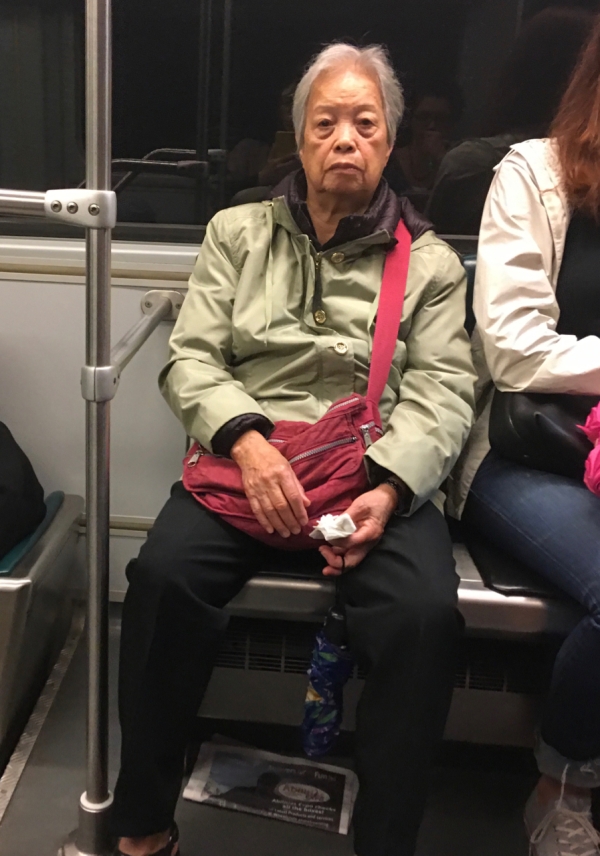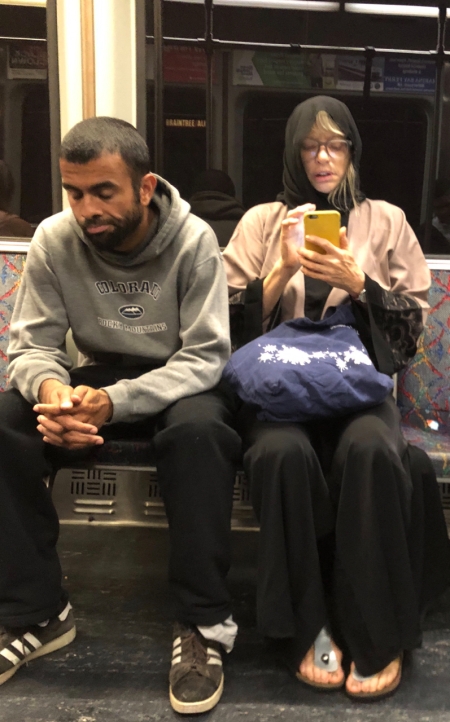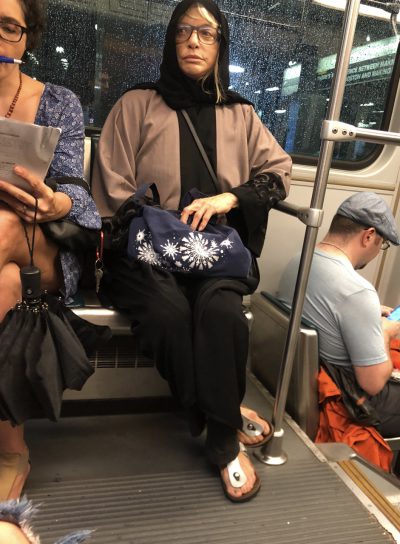
This woman got on subway car and sat across from me for 10 minutes. She stared at me as if i were an insect. When I got up to leave she followed my movement out with her eyes and even turned around and looked at me through the window as the train pulled away, as if she wanted to be sure I was gone. She didn’t smile. I smiled at her. I had to look away. What was she thinking?
On the same subway ride I received scowls from two more people, both women, who were sitting opposite me. At Central stop a blonde, middle-aged couple, both wearing Bermuda shorts, that sounded as if they were tourists from Australia, got on the train and headed for the empty seats next to me. Once they understood my garment, they retreated and choose to sit opposite me, on the other side, which was crowded. I politely said, “Oh, these seats are free,” and gestured with my hands to the open seating. “Oh no. We’re Ok over here,” the man said. Later, I moved to a spot right in front of him to check out the subway map o er his head. His face turned red. He didn’t look very comfortable.
 When I switched trains, I sat next to a man who might have been homeless. I’m not sure. My contemplation on this leg of the ride: As an artist I am living an experience in the cover-the-skin garment of a Muslim woman, but I could never live an experience in the skin garment of a black man.
When I switched trains, I sat next to a man who might have been homeless. I’m not sure. My contemplation on this leg of the ride: As an artist I am living an experience in the cover-the-skin garment of a Muslim woman, but I could never live an experience in the skin garment of a black man.
Isn’t it important for us humans, in this over-crowded world, to be able to step back and look at our beliefs? Why not make room for new beliefs and understandings and realize that cookie-cutter gut reactions to another person may be off base.
“Affective partisan polarization,” and it is a very serious problem for any democracy. As each side increasingly demonizes the other, compromise becomes more difficult. It seems implicit or unconscious biases are now at least as strong across political parties as they are across races.

Leave a comment